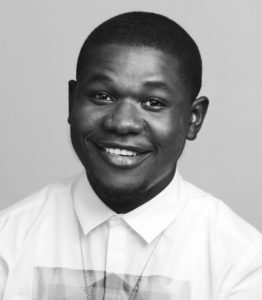Meet the New AHA Staff Member: Innanoshe R. Akuson

Please welcome the American Humanist Association’s new Social Media Coordinator, Innanoshe R. Akuson!
TheHumanist.com: What is your educational and work background?
I hold a bachelor of laws (BL) from the Nigerian Law School, Lagos, and a bachelor of laws (LL.B) from the Nasarawa State University, Keffi. I was admitted to the Nigerian Bar in 2017 as a barrister and solicitor of the Supreme Court of Nigeria. I acquired much of my professional experience at media startups before later starting my own companies. In 2016, I started a boutique PR agency that catered primarily to startups in Nigeria, and in 2017, I started A Nasty Boy magazine, Nigeria’s first LGBTQ+ publication to spotlight the lives and lived experiences of queer Nigerians.
TheHumanist.com: How did you first learn about humanism?
Quite frankly, I’m only now learning about humanism. Furthermore—and this is somewhat unrelated to the question—I’m glad I was honest and upfront about not knowing a great deal about humanism because now I get to learn and unlearn without feeling any unwieldy pressure, especially seeing how well-versed everyone else at AHA is on humanism. I do approach life based on reason and our shared humanity, which, as it turns out, are humanist principles, too.
TheHumanist.com: Did you grow up in a traditional religious faith? How did it impact you?
Oh, absolutely! I grew up in a staunchly Evangelical household, in a town with more churches and mosques than paved roads, schools, hospitals, banks, and libraries combined. At the age of eight or nine, I was sent to a co-educational boarding school that promised to raise us “in a Christian school atmosphere, under the guidance of mature and experienced Christian teachers and mentors.” I remember how that made me fear going to class and how I dreaded going back to school after the holidays or midterm breaks. There were days we had to fast from dawn to dusk, and evenings spent at “Christian Investment” fellowships. Compulsory Sunday church services, morning and evening devotions, and Bible studies at morning assemblies often ate into our first periods. In hindsight, it’s not so much the frequency of these things that bothers me the most, but how each piece came together to form the mirror in which I viewed myself. And that, for me, is the irreparable damage that I find hard to forgive. I lived every waking moment of my life as a boy, teenager, and an adult feeling inadequate—feeling like a colossal disappointment; like a sinner; like a leopard that could never change his spots. And that, in my opinion, is the gravest feeling of all—the feeling of trying and failing and trying again over something that always, at least for me, never needed any fixing.
TheHumanist.com: What interested you most about working for the American Humanist Association?
I was the most drawn to AHA’s advocacy for religion and government separation. As someone who knows firsthand the price of faith-inspired policies like Nigeria’s Same-Sex Marriage (Prohibition) Act, I am excited to lend my background and experiences to AHA’s mission. The opportunity to learn more about how humanism and its many facets tie together to make this world a better place also brought me to the AHA.
TheHumanist.com: What book has influenced you the most?
I remember reading The Joys of Motherhood by Buchi Emecheta back in secondary school. And every other year since then. The book does a brilliant job of drawing you into the catastrophic life of Nnu Ego, the protagonist. Notwithstanding the title of the book, which promises a joyful portrait of raising children, motherhood for Nnu Ego is much more complex than that. On the one hand, it is the source of Nnu Ego’s greatest joys, and on the other, it is the source of her greatest defeats.
Each time I read The Joys of Motherhood, I leave with a deeper and more nuanced understanding of the beauty and horror of selflessness, love, sacrifice, and duty. It’s an African literary classic with universal themes around the nebulous rewards of motherhood, the bruising disillusionment of dreams, the adverse influence of colonialism, and the diminished role of women in Nigerian society.
Here are some of my favorite quotes from the book:
“A man is never ugly.”
“On her way back to their room, it occurred to Nnu Ego that she was a prisoner, imprisoned by her love for her children, imprisoned by her role as the senior wife.”
TheHumanist.com: If you could have dinner with any three people in the world (living or dead), who would they be and why?
I’d love to have dinner with writer and novelist Chimamanda Ngozi Adichie because she’s one of the most brilliant minds out there. Her views on feminism are as intersectional as they are dynamic, and they have significantly helped shape my own. I’m also fascinated by Toni Morrison, who sadly died on August 5. I recently watched her documentary, Toni Morrison: The Pieces I Am. Her brand of confidence and self-assuredness made my eyes water with joy and awe. I found her story simply astounding. I have bought some of her books (on an online literary thrift shop I love) to read on my long commute to work. I cannot wait to discover more of her as a writer! Finally, I’d like to have dinner with Genevieve Nnaji, the Nigerian actress, because I’ve been a fan since I was a little boy.
